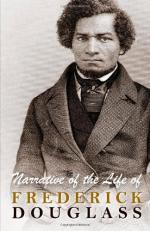|
This section contains 7,441 words (approx. 25 pages at 300 words per page) |

|
SOURCE: Bergner, Gwen. “Myths of the Masculine Subject: The Oedipus Complex and Douglass's 1845 Narrative.” Discourse 19, no. 2 (winter 1997): 53-71.
In the following essay, Bergner draws parallels between the identity formation present in Douglass's Narrative and Freud's theory of the Oedipus complex.
No pre-emancipation text by an African-American has enjoyed as much currency as Frederick Douglass's 1845 autobiography, Narrative of the Life of Frederick Douglass, An American Slave, Written by Himself. Long considered the paradigm text of African-American slave identity, Douglass's Narrative was a forceful testament for the abolition movement and for African-American literary and historical consciousness. Douglass commandeered American myths of self-reliance and heroic rebellion to describe his escape from slavery; in this way, he extended symbolic citizenship to African-Americans (Andrews 166). His Narrative modeled “a coherent self which subsequent generations could use as a point of origin of written Afro-American discourse and subjectivity” (Cunningham 109). Deemed the “prototypical, premier example of...
|
This section contains 7,441 words (approx. 25 pages at 300 words per page) |

|


